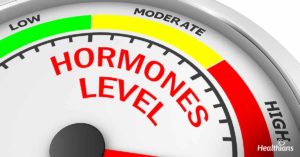Contributed by – Healthians Team
All of us are different individuals who have different likes, dislikes, choices, behaviour etc. But did you know that hormones are the reason behind it. Mood swings? Hiccups in relationships? Could be due to hormonal imbalance.
Have you ever thought that hormones could be that effective? Yes, your hormones actually define your personality and can affect your relationships too! Why men and women are so different in their thoughts, preferences and behaviours? Or how come the understanding of one person differs from the other? It’s all in the hormones.
Your hormones are much more than just numbers, they can actually control your health, life and relationships. So, knowing about hormones and how they affects us can help us be a better person, have much happier and sorted lives.
Hormones and Relationships
Let us walk down the hormonal lane to understand how and why hormones play such a major role in our relationships.
The hormone system is fascinating and at the same time really complex. Our hormones can get us into a lot of trouble, a classic example is mood swings during pregnancy or behavioural changes before periods or during menopause in women. Men too are affected with hormone imbalances which can affect intimacy and relations. However, hormonal balance is not just related to managing pre-menstrual syndrome, post-partum depression, menopause or andropause but is also needed for the betterment of all our relationships.
The main hormones that affect relations include oxytocin, testosterone, oestrogen, and progesterone. These are needed by men and women differently and any changes can have an impact on our health and relationships both. Thus it is really crucial to discuss about these hormones and their affects.
Oxytocin
Oxytocin, commonly called the love hormone gives a sense of love and bonding, thus helps to have better connectivity in our relations. If you are in search of a feel-good hormone that would give you pleasure and satisfaction, oxytocin is the answer. Inadequate oxytocin causes irritability, ineffective communication, feeling of disconnect, sleep problems and unsatisfactory intimate relations. Normal oxytocin levels can allow you to enjoy long term stable relations – good for those looking at secure relationships.

Testosterone
Testosterone is male hormone that defines masculinity in males. Low testosterone in men can lead to mood problems, irritability and self-esteem issues. These negative emotions can affect personal relations and can lead to frequent arguments, lack of understanding with the partner and disturbed families. Aging, stress, trauma, chronic ailments, and hormone problems can cause low testosterone in men. This can also affect sexual relationships, fertility and cause low self-esteem.
Oestrogen
Oestrogen, the female hormone increases during puberty, promotes feminine development, sexual activity and fertility while it drops during menopause. With normal oestrogen level, women have sexual desire and can enjoy good relations with their partners. Low oestrogen levels can cause vaginal dryness and reduced sex drive. This, when clubbed with irritability, lack of tolerance and mood swings can be a potential bomb that blow up our relationships. It most commonly occurs in peri-menopausal and menopausal women, any causes that result in low oestrogen can influence relationships in a similar way.
Some women, on the other hand have an excess of oestrogen, which can be a problem for health and relationships as well. Complaints like water retention, hair loss, headache and fatigue are common, making it difficult for women to maintain calm. Some men, with an excess of oestrogen have increased feminine features which affects their whole personality.
Progesterone
Progesterone hormone is at it’s best during pregnancy and early motherhood. This hormone boosts the motherly instincts of the new mother and increases the possessiveness towards her baby. Many new parents experience less intimacy during initial few years after the baby’s birth and changed hormone levels could be one of the reasons.
Similarly, many hormones that vary based on your gender, age and phase of life. Most of these affect your health and ultimately your relations. To know if your hormones are doing well, get regular medical check-ups done and check your hormones, as advised. If there is an imbalance, timely management will help.
To put in very simple words to enjoy healthy relationships you must have a healthy balance of hormones. So, if you are trying to find ways for better relations, you can focus on having a sound hormone balance. A healthy, balanced diet, weight management, regular exercises, breathing exercises and stress management can help you maintain hormone balance. But make sure you get the right advice if needed.




